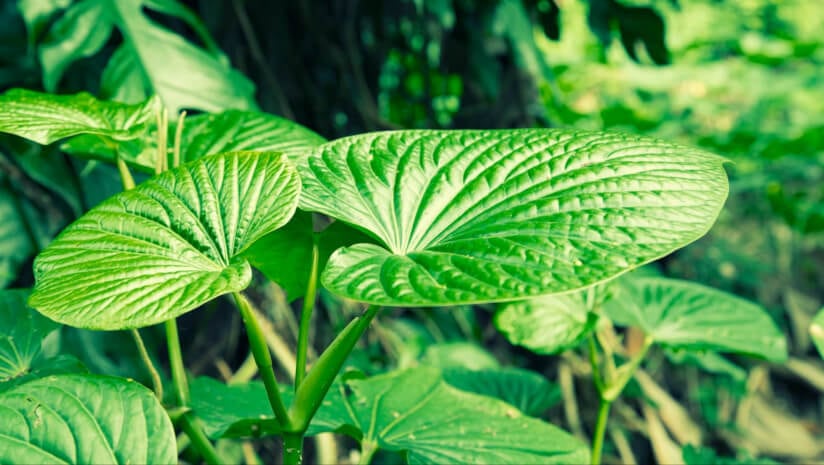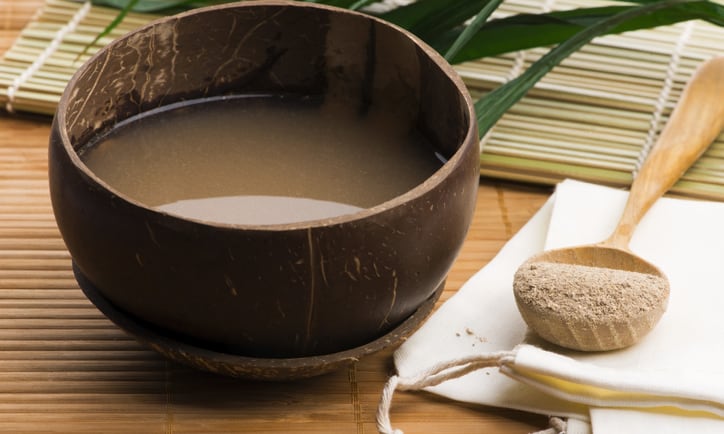“With regulators taking a closer look at kava, the industry must come together to present a clear and unified voice,” said Robert Marriott, vice president of regulatory & government affairs at AHPA. “This working group will provide a forum to share knowledge, align strategies and support responsible commerce—and we welcome participation from across the herbal community.”
The working group will hold its first virtual meeting on Sept. 5 from 1 to 2 pm (ET). Participation is open to AHPA members as well as other industry stakeholders with an interest in kava.
Building kava’s safety profile
Kava, a perennial shrub native to the South Pacific and member of the pepper family, has traditionally been used by Pacific Islanders to promote relaxation for medicinal and ceremonial purposes. In the United States, it is sold as both supplement and steeped as beverage. Kavalactones, the plant’s primary bioactive compounds, are responsible for most of its effects.
The AHPA working group initiative builds on the association’s ongoing efforts to support kava and its safe use. In March 2024, it released an updated entry for kava (Piper methysticum) in its online Botanical Safety Handbook, providing comprehensive safety information compiled from clinical research, case reports and traditional use.
The entry added over 45 new literature references covering pharmacological interactions with drug or supplement metabolism, other pharmacological studies of bioavailability and enzyme inhibition, and analysis of adverse events and case reports. An expanded editor’s notes section contextualized the distinct phytochemical profiles of traditional (water-extracted) and contemporary extraction processes using organic solvents.
Ahead of the first working group meeting, AHPA also referenced a 2024 Hawaii Department of Health (DOH) memorandum reporting that traditionally prepared ‘awa (kava) beverages are generally recognized as safe (GRAS) based on a history of common use prior to 1958. It noted that organic extraction (i.e., using acetone, ethanol or similar solvents for extraction) results in two to 10 times the total amount of kavalactones than is extracted via aqueous extraction.
This position diverged from a 2020 U.S. Food and Drug Administration (FDA) memorandum evaluating kava products, which DOH stated “erroneously classified the traditional ‘awa beverage … as unsafe for human consumption” due to potential health risks. FDA had issued a consumer advisory in 2002 stating the potential—though rare—risk of severe liver injury associated with the use of kava-containing dietary supplements.
In March 2025, the FDA confirmed that “a tea produced from kava and water alone is considered a single-ingredient conventional food” and not regulated as a food additive under federal law. The Codex Alimentarius regional standard for kava beverages, adopted by FDA in 2023, supports this distinction, acknowledging the cultural and traditional context of kava use.
“Kava has a deep cultural history and a well-documented record of safe use,” said Holly Johnson, PhD, chief science officer at AHPA. “AHPA is committed to ensuring that both policymakers and consumers have access to accurate, science-based information about this important plant.”
Recent local regulatory action on kava
In May 2025, the Michigan Department of Agriculture and Rural Development issued a warning, reminding consumers that any psychoactive or psychotropic ingredient, including non-noble kava, added to foods or dietary supplements is considered unapproved and therefore adulterated under both Michigan and federal law.
Noble kava—which the state designated as GRAS in January 2023—is distinguished from other non-noble cultivars as a specific type that is carefully grown and processed to provide a chemical profile with calming and mood-lifting properties without the unwanted side effects.
“Psychoactive or psychotropic substances, when added to foods or dietary supplements and consumed, can affect mental processes like perception, consciousness, cognition or mood and emotions and are not legal to use as food ingredients,” Tim Slawinski, director of the MDARD Bureau of Food Safety and Animal Health, said at the time.
Based on the possibility of impairment and subsequent threat to military readiness, the Department of Defense added kava to the DoD Prohibited Dietary Supplement Ingredients List on April 23, 2024.
More recently, in a federal district court decision regarding Kavasutra cafés in New York City, a judge upheld a municipal ban, ruling that steeping kava in water constitutes a food additive under federal regulation because it alters water’s composition by adding kavalactone compounds with potential hepatotoxic effects.
The city’s stance was given strong judicial deference accompanied by enforcement authority despite conflicting interpretation regarding FDA guidance.
“The court’s decision takes no position on the regulatory status of kava dietary supplements or kava material sold in tea bags,” AHPA’s Marriott previously told NutraIngredients. “Rather, the court found that the plaintiffs had failed to prove by a preponderance of the evidence that kava steeped in water and sold at a New York food service establishment qualifies as a ‘food’ (rather than a ‘food additive’) under the Federal Food, Drug and Cosmetic Act.”
He added that AHPA had submitted an amicus brief to the U.S. Court of Appeals, reaffirming that kava when mixed with water is “unequivocally a ‘food’ and not a ‘food additive.’”



